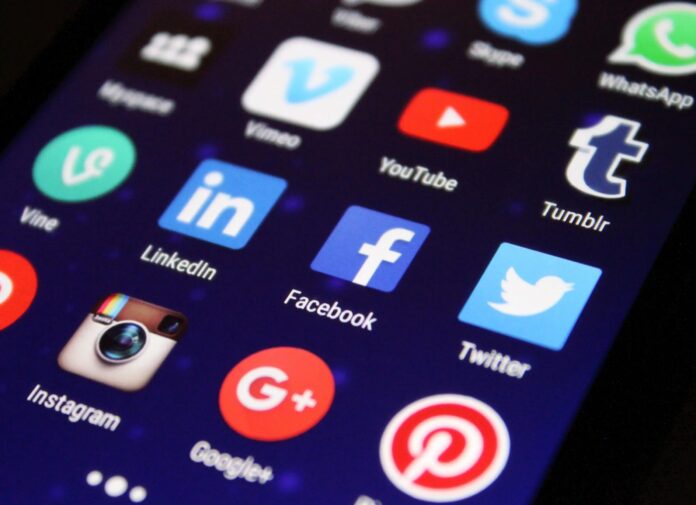Working from home is a new trend that has been enabled by the sheer growth of tools and cutting-edge technologies. It became even more popular during the Covid-19 pandemic. During and after the pandemic, companies have started implementing hybrid and remote working models, enabling employees to work from anywhere.
Social media usage rocketed throughout the pandemic, with many social media platforms becoming increasingly popular.
In this article, we will explain how social media has influenced the remote working culture since the start of the Covid-19 pandemic, a trend which continues even today.
Impact on Jobs

Social media is ingrained in our mode of communication, which results in smoother and easier professional communication. The adaptability of millennials and other workers to the digital world is mainly due to the integration of social media channels into remote work.
Many social media jobs have risen from the popularity of platforms like TikTok, OnlyFans, Instagram, Pinterest, and others.
Companies need social media managers, executives, and marketing specialists to lead their social media campaigns and attract organic traffic. Onlyfans Management agencies are staffed with professionals who have extensive experience in the adult content industry and understand the intricacies of the platform. They know what works and what doesn’t, which can save you time and effort in navigating the platform effectively.
And creators on sites like ReadySetCam have been able to leverage the popularity of social media to connect with others and build a fan base.
Copyright: Alexander Shatov on Unsplash I License: CC0 Public Domain
The Remote Work Culture

Remote work is work done from anywhere. As its name implies, remote workers can do their tasks and responsibilities remotely from the comfort of their homes or anywhere in the world. It doesn’t matter as long as the job is done.
When the remote work trend started, only the top executives had the privilege of working from anywhere. However, nowadays, many companies embrace remote work strategies, not just to save money but also to nurture a healthier and more flexible work environment.
Companies and organizations have realized that employees are much happier when they work on flexible schedules and from anywhere. This way, employees are much more productive, and the company saves money on renting offices, paying bills, and covering utility or food costs.
Why Social Media Is So Popular

When companies embraced the remote work culture, new and advanced communications technologies started emerging. Technology is infiltrating every service and sector, fueling the development of more communication and networking tools.
The importance of social media is seen in:
- Keeping coworkers connected
- Allowing managers to have access to their team members at any time
- Allowing remotely distributed teams to come together virtually
- No management prompting meetings since there are many communication tools where employees can have 1:1 meetings with just a click
- Improving team morale
But how exactly did social media influence remote culture? Well, within the technological advancements and the birth of many social media platforms, social media comes into play in several ways. We will discuss some of these influences below.
Copyright: Will Francis on Unsplash I License: CC0 Public Domain
Professional Networking

Platforms like LinkedIn helped many people find remote job opportunities and leave their 9-5 jobs where they had to commute to the office daily. LinkedIn is the largest professional networking site where people can connect and showcase their expertise, recommendations, and profile.
Reasons people use such networking platforms are:
- Gaining exposure to recruiters and hiring managers – according to LinkedIn, 93% of recruiters use this platform to recruit and research candidates
- Use it as a research tool
- Demonstrate their professional expertise, prior work experience, and knowledge
- Improve their social skills
- Join groups
- Search the mainstream job opportunities
- Connect with fellow professionals
Additionally, there’s been a 78% increase in job ads on LinkedIn in the last two years, most of them offering remote working options.
Improved Work and Personal Life
Many company executives, CEOs, and employees will agree that the remote working culture improved their professional and personal life. The lifestyles of these people consisted mainly of spending too much time at the office, so their loved ones at home were used to not seeing them most of the time.
However, this changed when remote work and social media made it possible to bring balance back into their lives and fulfill their personal and professional aims. Working from home has enabled employees to bridge the long-term gap between their personal and professional life.
It also accommodates their communication with the rest of the team. This means employees can stay in touch with their coworkers through social media or communication tools like Teams, Slack, Discord, or Zoom and get the job done.
Improved Teamwork

Another benefit of social media in remote cultures is improved teamwork and internal operations. Often, companies apply gamification principles to boost teamwork and enhance teams to compete. Since various teams will compete to achieve their goals, they will also grow closer as a team and even become friends outside of the office.
Improved Collaboration
According to Webnus, social media is a catalyst for work processes. With the popularity and continuous usage of social media tools and platforms, collaboration has never been easier among teams.
The office is an intimidating environment for many people, and sometimes it’s difficult for them to provide input, share a perspective, or give a suggestion regarding a certain project. Social media enables people to connect in a more relaxed environment, share their knowledge and opinions and provide better input.
Copyright: Fimbee.com on Unsplash I License: CC0 Public Domain
How Social Media Promotes Remote Work

Social media promotes remote work by streamlining the work process. For instance, social media platforms like Slack allow employees to communicate and connect and maintain office collaboration.
Social media is also used for professional growth by:
- Growing the PLN – Personal Learning Network
- Using social media networks to their maximum potential
- Learning about the latest courses or academies in your field via social media marketing campaigns
The Future of Social Media
Social media is seen as the future of remote work. Many companies have chosen alternative ways of conducting their businesses and transferring their apertures into the digital world. Social media has shown companies that they can be successful even if they work completely remotely.
While experts predict that social media will be growing even more in the coming years, we will have to wait and see. In the meantime, we continue to adapt to new trends and working cultures.









